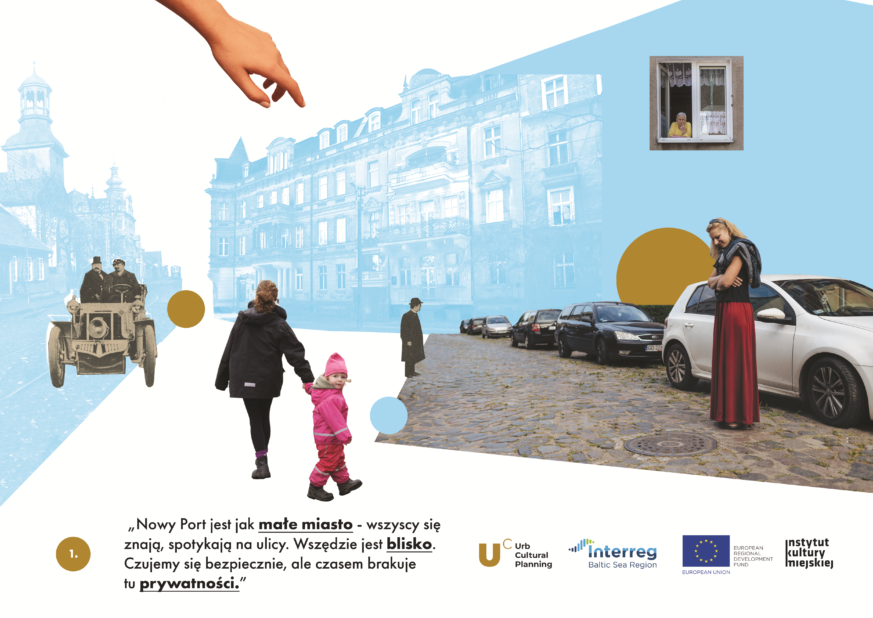 Tools and methods
Tools and methods
- Cultural planning phase Mapping, visioning, implementation and management
- Purpose Analysing everyday life, analysing the relationship with the place, integration of residents, intervention in the public space
- Participants: Youth, adults, residents, experts, artists
- Number of participants: 5–20
- Author
UCP team (Katarzyna Werner); Magdalena Nestorowicz
Tools and methods
Digital collages – old/new
When it is useful
The mapping process can rely on a variety of creative tools to visualise relationships with the given place. In the digital collage workshop, we use materials from digital libraries, private collections and personal impressions of the participants. People taking part in the workshop represent different groups of residents – those who have lived here for generations and those who have only recently moved into the neighbourhood. Each of them brings their own story that will contribute to creating the future of the neighbourhood, along with photos and souvenirs from the past. The collages, created using simple graphic tools, illustrate their daily life in the neighbourhood, their different perspectives on the same places, their history and future. This workshop can be held in a common room, but also online. Depending on the group’s preferences and skills, collages can be made by them personally, with the support of an artist or by the artist him-/herself based on materials provided by the group. The results of the work are presented in the form of an exhibition on panels in the neighbourhood – first in one of the locations (square, park). Later, each of the boards can be presented separately in different places that agree to host them, like in Nowy Port (Gdańsk, Poland): a shop, a hairdresser’s, a kindergarten, a library.

Step by step instruction
- Invite a mixed group of new and old inhabitants of the neighbourhood to the workshop.
- If you decide to meet face to face, prepare a room with computers or ask the participants to bring their own.
- Ask everyone to bring or digitise their photos, personal souvenirs, letters, etc.
- Prepare a bank of digital images about the neighbourhood. Use resources from local libraries, digital libraries, private collections of people interested in the history of the neighbourhood and materials provided by the locals.
- Begin the workshop by starting a conversation with the participants about: everyday life in the neighbourhood, memories of moving there, childhood memories of the neighbourhood, first impressions of specific places in the neighbourhood, local identity and bonds with other inhabitants. Try to write down these parts of the statements that best illustrate the themes and encourage participants to present specific pictures during the meeting.
- If you decide to cooperate with an artist, you can end the meeting here and hand the material and quotes from participants to the author of the collages (ideally he/she should also be present during the workshop).
- If you are going to make the collages yourself, after the discussion (or at the next meeting) introduce the participants to the different sources of materials in the public domain. Provide access to the database of digital materials you have created.
- Ask an artist experienced in making digital collages to introduce participants to the basics of using a simple graphics program to edit digital images.
- During the workshop, the participants – individually or in pairs (preferably combining old and new residents) – create collages which present their experiences of the neighbourhood and their relationships with specific places, using a common image bank and integrating personal memories and comments.
- After the workshop, the finished collages can be printed as posters or charts on a more durable material. Find a place in the neighbourhood where the exhibition can be presented, invite the authors and workshop participants to the opening. After a few weeks and discussions with representatives of local meeting places and sites, you can separate the boards and move them to new places.

